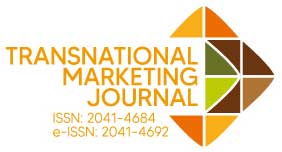Reviewers
Reviewers for Kurdish Studies
Kurdish Studies aims to disseminate and provide a platform for research, scholarship, and debates in Kurdish studies. Studies publishes material directed to scholars, researchers and professionals who work in the field of Kurdish Studies and dealing with related issues. These individuals include students and researchers as well as policy makers and service workers. Our reviewers elected to serve because of their knowledge and expertise on Kurdish studies.
For books to be reviewed, before sending any books for review, the publishers and book reviewers must contact the book review editor, Ethem Coban by email.
About 20,000 individuals and institutions in more than 150 countries are potential subscribers to Kurdish Studies
What does a reviewer/referee for Kurdish Studies do?
As a member of the Editorial Review Board or as an ad hoc reviewer, you will be asked to anonymously review manuscripts submitted to Kurdish Studies. Editorial Review Board members review two to three manuscripts per year, and ad hoc reviewers are invited to review as needed. Each year Kurdish Studies has about 100 manuscripts submitted and reviewed, most of which are between 12 and 20 pages and should be original unpublished accounts about 4,000 to 8,000 words.
We encourage electronic review. The reviews can also be e-mailed to us in the body of the e-mail or attached to the e-mail. Please use the online review system links in the email request for review you have received from us.
We allow FOUR to SIX WEEKS for you to read and respond to the manuscript. Please note that your adhering to the return deadline is very important in our review process. (If you are on the Editorial Review Board, we would appreciate your letting us know when you will be away for an extended period of time so that we do not direct manuscripts to you during that interval. We would appreciate your keeping us informed of your current address.)
How can a reviewer make an optimum contribution to a writer’s work?
There are several features of a manuscript that should be addressed in an effective review. As editors and contributors to journals, we appreciate a reviewer’s beginning a review with a brief summary of the article. Following that, we would suggest structuring the commentary to reflect the four categories used in rating manuscript quality: content, rationale or reasoning, style, and audience appropriateness. Several questions related to each of these categories are provided below to help reviewers develop their commentaries:
Freshness and Scope of Content
Is the content fresh? Are readers likely to perceive the piece as a contribution to their concerns about Kurdish Studies? Will readers view the work as current?
Does the paper articulate an innovative strategy, program, or perspective? Or does the paper provide a fresh view or synthesis of existing knowledge?
Rationale and / or Reasoning
- Is the purpose of the article manifest? Does the content of the manuscript clearly align with the purpose? Does the paper contain material not essential to its purpose?
- Has the author, as appropriate, provided a sufficient review of the literature to provide a base for the work undertaken?
- Are stated conclusions, results, or findings well-documented and sustainable with credible evidence?
- Do conclusions clearly rest on data presented and analyzed?
- Does the article contain any unresolved ambiguities or conflicting information?
- Are conclusions generalizable to other contexts?
Style
- Is the manuscript’s organization effective?
- Is the writing lucid, coherent, and well focused?
- Where appropriate, are the procedures, data, method of analysis, and findings clearly presented?
- Would a reader find the material accessible?
- Does a sense of the author’s standpoint and perspective emerge?
Audience Appropriateness
- Would an audience of specialists respond with enthusiasm to the content of the manuscript?
- Are readers likely to view information gained from the manuscript as information that would add significantly to their knowledge and effectiveness?
Answers to these or similar questions are likely to provide authors with the detailed commentary they may need to revise productively. They will also provide us with important information about your transactions with the text so that we can draft supportive letters to our authors when we recommend revision and resubmission.
Ranking Manuscripts
- Reviewers are asked to indicate their judgment of a paper’s content in terms of its being fresh and current.
- We ask them to determine the degree to which major points are evident, supported, and substantiated.
- We ask that they evaluate the clarity of the author’s writing and the degree to which it is unpretentious.
- We ask that reviewers indicate how appropriate the content of an article is for our readership, which consists primarily of specialists, researchers, service providers and government professionals.
After you have read, reflected upon, and written about the manuscript, we ask you to provide us with an overall recommendation.
- A) Accept, with minor editorial changes
- B) Accept with revisions
- C) Revise and resubmit
- D) Reject, not publishable
Your detailed comments will be forwarded to the author of the article and will be the only communication between a reviewer and an author.
Thank you for serving as a reviewer for Kurdish Studies. Your contributions of time and thoughtfulness are very much appreciated, as well as your detailed comments. They will enable Kurdish Studies to make decisions about the work that our writers have contributed.
Thank you.
Kurdish Studies, Editorial Team
